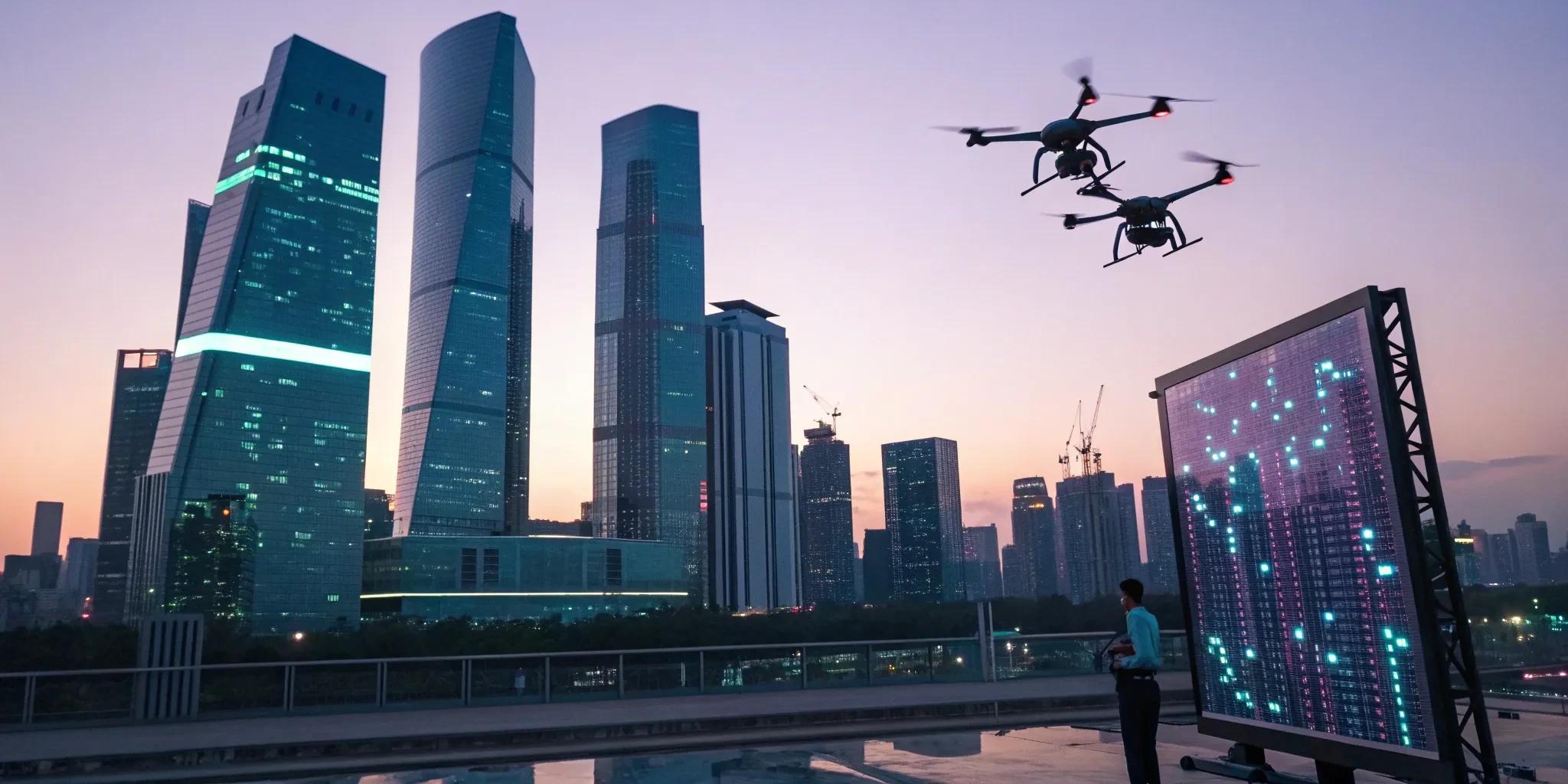Finding the right AI engineer is about more than just checking boxes on a resume. The best candidates bring a unique mix of technical expertise, real-world experience, and crucial soft skills. To attract this level of talent, you need to understand what they're looking for in their next role. It's not just about salary; it's about challenging projects, a strong team culture, and opportunities for growth. This is where the most effective AI Engineer recruiters Bay Area agencies excel—they have deep relationships with top talent and know what it takes to get them interested. This guide will give you an inside look at what makes a top candidate and how to build a hiring process that attracts them, ensuring you're not just filling a seat but making a strategic hire for the long term.
Key Takeaways
- Partner with a Specialist to Access Top Talent: In a competitive market, a specialized AI recruiter is your biggest asset. They provide access to a hidden network of qualified candidates and handle the technical screening, saving you time and connecting you with the right people faster.
- Evaluate the Whole Candidate, Not Just the Code: A top AI engineer brings more than technical prowess. Look for a combination of proven industry experience, strong collaborative skills, and a genuine commitment to learning to find someone who will truly drive your team forward.
- Build a Team That Lasts by Focusing on Culture and Growth: The hiring process doesn't end when an offer is signed. To retain top talent, you must invest in a supportive team culture, provide clear career advancement opportunities, and create an environment where great engineers want to stay.
Why Partner with an AI Engineer Recruiter?
Hiring for any role is tough, but finding the right AI engineer in a competitive market like the Bay Area can feel like searching for a needle in a haystack. The demand is high, the talent pool is specific, and the stakes are even higher. This is where a specialized recruitment partner can completely change the game, turning a stressful search into a strategic advantage. Instead of just posting a job and hoping for the best, you get an expert who understands the landscape and can connect you directly with the people you need to meet.
The Challenge of Bay Area AI Hiring
It’s no secret that the Bay Area is a major hub for tech talent. While that means there are plenty of brilliant minds around, it also creates intense competition. Companies are all vying for a limited number of highly skilled AI engineers, which drives salary expectations way up. For many internal HR teams, the first hurdle is simply getting the attention of top candidates. The second, and often bigger, challenge is accurately assessing their technical skills. It’s a specialized field, and without deep industry knowledge, it’s difficult to tell a good candidate from a great one. This can lead to long, drawn-out hiring cycles that end without a successful hire.
Why a Specialized Recruiter Gives You an Edge
This is where a specialized recruiter becomes your biggest asset. Think of them as an extension of your team—one that comes with a pre-built network of qualified, often passive, candidates who aren't scrolling through job boards. These recruiters live and breathe the AI world. They understand the nuances of different roles, from machine learning to MLOps, and can expertly vet candidates for technical prowess and cultural fit. By handling the heavy lifting of sourcing, screening, and initial interviews, they streamline the entire process. This saves you an incredible amount of time and resources, allowing you to focus on meeting a shortlist of exceptional candidates who are genuinely right for the job.
Key Trends in AI Engineering Recruitment
The AI landscape moves incredibly fast, and the way companies find and hire talent is changing right along with it. Staying on top of these shifts is crucial, whether you're a company trying to build a world-class team or an engineer looking for your next big opportunity. Understanding the current market dynamics—from skyrocketing demand to the specific skills that are most valuable—is the first step toward making a successful match. Here’s a look at the key trends shaping AI engineering recruitment in the Bay Area right now.
High Demand and Rapid Growth
It’s no secret that the demand for AI talent is through the roof, and the Bay Area remains the epicenter of this boom. The region currently accounts for nearly 15% of all AI-related job postings in the country, making it a magnet for both companies and top-tier engineers. For businesses, this means you’re facing intense competition for a limited pool of qualified candidates. For engineers, it means you have options—a lot of them. This high-stakes environment makes it more important than ever to have a clear strategy, whether you're hiring or job hunting. Standing out requires a deep understanding of the market and a compelling story to tell.
The Rise of New Roles and Specializations
The days of hiring a generalist "AI engineer" are fading. As the field matures, we're seeing a significant increase in specialized roles. The explosion of generative AI has created a need for engineers with creative and product-focused mindsets, while the demand for hybrid skills that blend deep technical knowledge with business strategy is on the rise. Companies are now seeking experts in specific domains like MLOps, natural language processing, or computer vision. This specialization means that finding the perfect fit requires a more nuanced approach. It’s about matching a candidate's unique expertise with the specific challenges a company needs to solve, moving beyond generic job titles to focus on tangible skills and impact.
A Look at Bay Area Salary Benchmarks
With high demand comes high compensation. Salaries for AI engineers in the Bay Area are not just competitive; they're setting new standards. In this market, top talent expects to be well-compensated, and companies need to be prepared to make compelling offers. Recent data shows average salaries soaring to over $200K, a significant jump from previous years. This isn't just about base pay; comprehensive packages including equity, bonuses, and benefits are essential for attracting the best candidates. For both employers and engineers, staying informed about current salary benchmarks is critical for negotiating fair and attractive compensation that reflects the incredible value these roles bring.
Top AI Engineer Recruitment Agencies in the Bay Area
Finding the right recruitment partner in a competitive market like the Bay Area can make all the difference. The best agencies don't just fill roles; they understand the nuances of the AI landscape and connect you with talent that fits your team's long-term vision. Here are some of the top firms making a mark in the Bay Area.
People in AI
We specialize exclusively in Artificial Intelligence and Machine Learning staffing, which gives us a deep understanding of the talent ecosystem. Our focus is on connecting businesses with premier AI and ML talent, from AI Engineers to Data Scientists. We work with a wide range of companies, from innovative startups to established global businesses in the Bay Area, helping them build the teams that drive progress. Our entire model is built on industry-specific expertise, allowing us to effectively match the right professionals with the right opportunities.
Other Leading AI Recruitment Firms
The Bay Area is home to several skilled recruitment firms. Redfish Technology, for instance, focuses on finding top machine learning and AI experts. They have a strong grasp of the data science world and excel at identifying candidates who can develop effective AI strategies. Another key player is Scion Technology, a top tech staffing agency in San Francisco. They assist companies in filling a variety of technical positions, including specialized roles in IT, engineering, and artificial intelligence, from Machine Learning Engineers to AI Research Scientists.
What Sets the Best Agencies Apart
So, what separates a good agency from a great one? The best firms have a dedicated team that truly understands the local job market. They offer exceptional guidance throughout the hiring process and focus on building lasting relationships with both clients and candidates, rather than just making a quick deal. True specialization is also key. An agency with a dedicated focus on AI and Machine Learning roles will have a more relevant network and a better ability to vet technical skills. They use their deep professional networks and industry knowledge to find candidates who are a perfect fit.
What to Expect from the Recruitment Process
Partnering with a specialized AI recruiter is more than just outsourcing a job search; it's a strategic collaboration. The process is designed to be thorough and efficient, saving you time and connecting you with talent you wouldn't find otherwise. A great recruiter acts as an extension of your team, guiding you from the initial job description all the way through to a successful hire. They handle the heavy lifting of sourcing, screening, and vetting, so you can focus on interviewing the most promising candidates who are not only technically proficient but also a great fit for your company culture. This partnership is especially valuable in a competitive market like the Bay Area, where top AI engineers are in high demand.
The recruitment journey typically breaks down into four key stages. It starts with a deep dive into your specific needs to create a precise candidate profile. From there, the recruiter taps into their extensive network to find and engage top talent—often reaching passive candidates who aren't actively looking. This is followed by a rigorous vetting process to confirm technical skills and past project contributions. Finally, they manage the offer and negotiation phase to help you secure your ideal candidate and ensure a smooth start. Let's walk through what each of these steps looks like in practice.
Defining Your Needs
The process begins with a detailed conversation. Your recruitment partner will work closely with you to understand not just the technical requirements of the role, but also your company culture, team dynamics, and long-term goals. This initial discovery phase is critical. It ensures everyone is aligned on what a successful hire looks like, which prevents wasted time reviewing mismatched profiles later on. A top recruiter helps you refine the job description and pinpoint the exact areas of expertise needed, whether you're hiring for a startup or an established enterprise. This clarity forms the foundation for the entire search.
Sourcing and Selecting Candidates
Once your needs are clearly defined, the search begins. Specialized recruiters don't just post on job boards; they leverage their deep industry networks and proprietary databases to identify top-tier talent. They have a keen understanding of the data science world and can spot candidates who know how to work with data, train AI models, and create effective AI strategies. They are constantly connecting with professionals for the latest AI engineering roles, giving them a real-time pulse on the market. This proactive approach gives you access to a much wider and more qualified talent pool, including passive candidates who aren't actively looking but are open to the right opportunity.
Vetting Technical Skills
In a field as complex as AI, it can be difficult to accurately assess a candidate's technical abilities from a resume alone. It’s not uncommon for candidates to overstate their involvement in past projects, making a thorough vetting process essential. A skilled recruiter goes beyond surface-level questions. They conduct in-depth technical screenings to validate a candidate's experience with specific algorithms, programming languages, and frameworks. They know the right questions to ask to uncover the true scope of a candidate's contributions and ensure their skills align with your hiring solutions. This step separates the true experts from the rest.
From Offer to Onboarding
Once you've identified your top candidate, the recruiter's job isn't over. They act as a mediator during the offer and negotiation stage, helping to manage expectations on both sides to reach a mutually beneficial agreement. They can provide valuable insights on competitive compensation packages and benefits, which is crucial in the Bay Area market. After the offer is accepted, a great recruitment partner helps ensure a seamless transition. A dedicated recruitment partner stays in touch with the candidate through their notice period and assists with any questions that arise before their start date, setting the stage for a successful onboarding experience and long-term retention.
What Makes a Top AI Engineer Candidate?
Finding the right AI engineer is about more than just checking boxes on a resume. The best candidates bring a unique mix of technical expertise, real-world experience, and crucial soft skills. When you’re building a team that will define your company's future, it’s important to know what separates a good candidate from a great one. It comes down to a solid foundation, a proven track record, the ability to collaborate, and a genuine passion for learning.
Must-Have Technical Skills
A strong technical foundation is non-negotiable. While a degree in Computer Science or a related field is a great start, the real test is their hands-on experience. A top-tier AI engineer should have at least a couple of years of experience building products and, just as importantly, supporting them in a live production environment. They need to be deeply technical, capable of designing architecture, writing code, and managing deployment and operations. This practical skill set shows they can not only create solutions but also ensure they run smoothly and reliably for your users.
The Importance of Industry Experience
While technical skills are the price of entry, relevant industry experience is what truly sets a candidate apart. An engineer who has a proven track record of delivering successful AI projects has faced and overcome real-world challenges that can't be replicated in an academic setting. This experience is why seasoned engineers often command higher salaries—they bring a level of problem-solving and strategic insight that can save a company significant time and resources. When you find candidates with this background, you're not just hiring a coder; you're investing in an asset who knows how to deliver results.
Beyond the Code: Essential Soft Skills
An engineer’s ability to work with others is just as critical as their ability to write code. In AI, projects are highly collaborative, often involving data scientists, product managers, and business leaders. That’s why you need to assess for soft skills like honesty, clear communication, and teamwork. It’s not uncommon for candidates to overstate their role in past projects, so it's essential to ask probing questions that reveal their true contributions and collaborative style. A candidate who can clearly articulate their work and demonstrate how they function as part of a team is invaluable.
A Commitment to Continuous Learning
The field of artificial intelligence is constantly changing. A tool or framework that’s popular today could be outdated in a year. Because of this, the most valuable AI engineers are those with a deep commitment to continuous learning. They are naturally curious, actively stay on top of the latest research, and are always experimenting with new technologies. This mindset is crucial for innovation and ensures your team remains competitive. Look for candidates who can speak passionately about what they're learning and how they apply new knowledge to their work.
Overcoming Common AI Recruitment Hurdles
Hiring top AI engineers in a competitive market like the Bay Area comes with a unique set of challenges. From intense competition to ensuring a candidate has the right technical chops, there’s a lot to manage. Understanding these common hurdles is the first step to building a strategy that attracts and keeps the best talent for your team. A great hiring solution involves anticipating these issues and planning for them from the start. Let's break down some of the biggest obstacles you're likely to face.
Competing for a Limited Talent Pool
The demand for skilled AI professionals far outstrips the supply, creating a highly competitive landscape. Top candidates often have multiple offers on the table, giving them significant leverage. Because AI engineers have such a specialized skillset, they can command high salaries, which can be a major hurdle for companies trying to fill roles. While a competitive salary is essential, it’s not the only factor. You also need to highlight what makes your company unique, whether it’s the groundbreaking projects you’re working on, your company culture, or the opportunities for professional growth. Standing out requires a compelling story that goes beyond the numbers in an offer letter.
Factoring in the Cost of Living
Nowhere is the salary conversation more critical than in the Bay Area. With the region accounting for nearly 15% of all AI-related job postings in the country, compensation packages are among the highest nationwide to match the steep cost of living. When you’re creating an offer, you have to think beyond the base salary. Candidates are evaluating the entire package, including equity, bonuses, benefits, and potential relocation assistance. To attract the best talent, your offer needs to be holistic and reflect the financial realities of living and working in one of the world's most expensive tech hubs.
Accurately Assessing Technical Talent
How do you know if a candidate can really do what their resume says they can? It’s a common challenge to find candidates who overstate their involvement in past projects or list skills they haven’t truly mastered. A standard interview process often isn’t enough to verify a candidate's deep technical abilities. This is why a rigorous and well-designed technical assessment is crucial. This might include practical coding challenges, system design interviews, and in-depth discussions about past projects to probe their specific contributions. Properly assessing a candidate's areas of expertise ensures you’re hiring someone who can hit the ground running and truly contribute to your team’s goals.
Thinking Beyond the Hire: Retention
Getting a top engineer to sign an offer is a huge win, but the work doesn’t stop there. Once you’ve successfully recruited great talent, the next challenge is keeping them. The same factors that make recruitment competitive also make retention difficult; your best people will always be on the radar of other companies. Building a supportive environment is key. This includes a smooth onboarding process, clear paths for career advancement, opportunities for continuous learning, and a culture that makes people feel valued. Focusing on retention from day one is the best way to build a stable, high-performing AI team for the long term.
How to Choose Your AI Recruitment Partner
Finding the right recruitment agency is just as important as finding the right candidate. This is a partnership that can shape the future of your team. When you’re ready to start the conversation, you’ll want to vet potential partners carefully to ensure they truly understand your needs and the unique demands of the AI industry. Think of it as your first interview—for the people who will be conducting interviews on your behalf. A great partner acts as an extension of your own team, representing your brand and culture in the talent market. Here are a few key areas to focus on when making your choice.
Assess Their Industry Expertise
The AI field is incredibly specialized, and you need a recruiter who speaks the language fluently. A generalist tech recruiter might not grasp the nuances between different AI engineering roles or the specific skills required for your projects. Ask pointed questions about their experience placing candidates in roles similar to yours. Do they understand the local Bay Area talent market? A top-tier partner will have a deep network of AI professionals and a clear understanding of the competitive landscape. They should be able to offer insights and advice, not just forward resumes. Their expertise is your strategic advantage in a crowded market.
Understand Their Fees and Services
Recruitment agencies offer various service models, and it’s important to find one that aligns with your company’s goals and budget. The most common structures are contingent search (you pay a fee only when a candidate is hired) and retained search (you pay an upfront fee for a dedicated, in-depth search). Some firms also offer engaged or container models, which are a hybrid of the two. Discuss their hiring solutions and fee structures openly. A transparent partner will explain their process and help you choose the best approach for the seniority and urgency of the role you need to fill.
Evaluate Their Track Record
A recruiter’s past performance is a strong indicator of their future success. Don’t just take their word for it; look for evidence. Ask for case studies, client testimonials, or even references from companies they’ve worked with. How long have they been in business? A long history in a fast-moving field like AI shows adaptability and a strong reputation. You want a partner who has a proven history of building successful, long-term relationships with both clients and candidates. This demonstrates that they focus on making quality matches, not just filling a seat quickly.
Check Their Communication Style
Throughout the hiring process, communication is everything. Your recruitment partner will be the face of your company to potential candidates, so their style should reflect your own values. During your initial conversations, pay attention to their responsiveness and transparency. Do they listen to your needs and ask thoughtful questions? A great recruiter provides regular updates, shares honest feedback, and makes you feel like a priority. You’re looking for a collaborative partner who will work with you to overcome challenges and celebrate successes, keeping you informed every step of the way.
How to Build a Strong AI Engineering Team
Finding a top-tier AI engineer is a huge win, but it’s only the first play of the game. The real goal is to build a cohesive, innovative, and high-performing team that sticks around for the long haul. A strong team isn't just a collection of brilliant individuals; it's a group that collaborates effectively, challenges one another constructively, and feels supported enough to take creative risks. This doesn't happen by accident. It requires a deliberate focus on creating an environment where people can do their best work and feel a sense of belonging.
Building this kind of team means looking beyond resumes and technical assessments. It involves cultivating a culture of inclusivity, defining a shared purpose, and investing in your people's professional growth. When you get these foundational pieces right, you don't just fill roles—you build a team that can tackle complex challenges and drive your company's AI initiatives forward. The following strategies are essential for turning a group of new hires into a powerhouse AI engineering team that becomes your company's competitive advantage. It’s about creating a sustainable ecosystem for talent, not just a revolving door of experts. This approach ensures that your investment in recruitment pays off through long-term innovation and stability.
Prioritizing Diversity and Inclusion
A team with diverse backgrounds and perspectives is your best defense against blind spots and biased algorithms. When everyone looks, thinks, and acts the same, you limit your team’s problem-solving capabilities. Many companies struggle to find the right talent because they have a narrow view of what an ideal candidate looks like, often recycling the same hiring channels. To build a truly inclusive team, start by writing job descriptions that focus on core competencies rather than an exhaustive list of niche qualifications. Then, actively source candidates from different communities and backgrounds. Standardizing your interview process can also help reduce unconscious bias and ensure every candidate gets a fair evaluation based on their skills and potential.
Developing a Winning Team Culture
A great team culture is the glue that holds your talent together. It’s not about free snacks or ping-pong tables; it’s about creating an environment of psychological safety where engineers feel comfortable sharing ideas, admitting mistakes, and challenging the status quo. The best recruiters focus on finding candidates who not only have the right technical skills but also align with a company's team and values. To foster this, clearly define what your team stands for. Is it collaboration, relentless curiosity, or customer obsession? Communicate these values consistently and recognize team members who embody them. A strong culture attracts the right people and gives them a reason to stay beyond the paycheck.
Providing Clear Growth Paths
Once you successfully recruit top AI talent, the next challenge is keeping them. Ambitious engineers want to know they have a future with your company, not just a job for today. Without clear opportunities for advancement, your best people will eventually look elsewhere. Create transparent career ladders that show engineers what it takes to move from one level to the next, both as individual contributors and as managers. Support their growth with mentorship programs, a budget for professional development, and opportunities to work on new, challenging projects. Investing in your team's career development shows you’re committed to their success, which is one of the most powerful retention tools you have.
Integrating Remote and Hybrid Work
In today's competitive market, restricting your search to a single geographic area puts you at a major disadvantage. Embracing remote and hybrid work models allows you to access a much wider and more diverse talent pool. Specialized recruiters can help companies find exceptional AI and ML talent anywhere in the country, opening up possibilities you’d otherwise miss. To make a distributed team successful, invest in seamless communication tools and establish clear expectations around collaboration and availability. More importantly, be intentional about building connection. Schedule regular virtual social events and, if possible, occasional in-person meetups to strengthen team bonds and ensure everyone feels like a valued part of the mission.
Frequently Asked Questions
Why should I use a specialized AI recruiter instead of my internal HR team? Think of it this way: your internal HR team are experts at general hiring, but AI is a world of its own. A specialized recruiter lives and breathes this specific market. They have an established network of top-tier AI engineers, including passive candidates who aren't even looking at job boards. They also have the deep technical knowledge to properly vet candidates, ensuring you only spend your time meeting people who are truly qualified for the role.
What's the biggest mistake companies make when trying to hire AI engineers? One of the most common missteps is having a slow and undefined hiring process. Top AI talent is in high demand and often has multiple offers on the table. If your interview process drags on for weeks with no clear next steps, you'll lose the best candidates to more decisive companies. It's crucial to have a streamlined, transparent process that respects the candidate's time.
We're not a huge tech company. How can we compete for top AI talent? While a competitive salary is important, it's not the only thing that matters. You can stand out by highlighting what makes your opportunity unique. This could be the chance to have a major impact on a product, a fantastic team culture, a commitment to professional growth, or the opportunity to solve incredibly interesting problems. A good recruitment partner can help you craft a compelling story that attracts candidates who are motivated by more than just compensation.
How can I be sure a candidate's technical skills are as strong as they claim? This is a major challenge and a key reason to partner with an expert. A skilled AI recruiter goes far beyond a resume. They conduct in-depth technical screenings and know how to ask probing questions about past projects to understand a candidate's specific contributions. This rigorous vetting process separates the true experts from those who simply list buzzwords, ensuring the people you meet have the hands-on experience you need.
Beyond finding a candidate, how does a recruitment partner help with the offer and retention? A great recruiter's work isn't finished once you've found your ideal candidate. They act as a valuable mediator during the offer stage, providing insights on competitive compensation to help you secure your top choice. They also help ensure a smooth transition from the moment an offer is accepted to the candidate's first day, which sets a positive tone and is the first critical step toward long-term retention.















